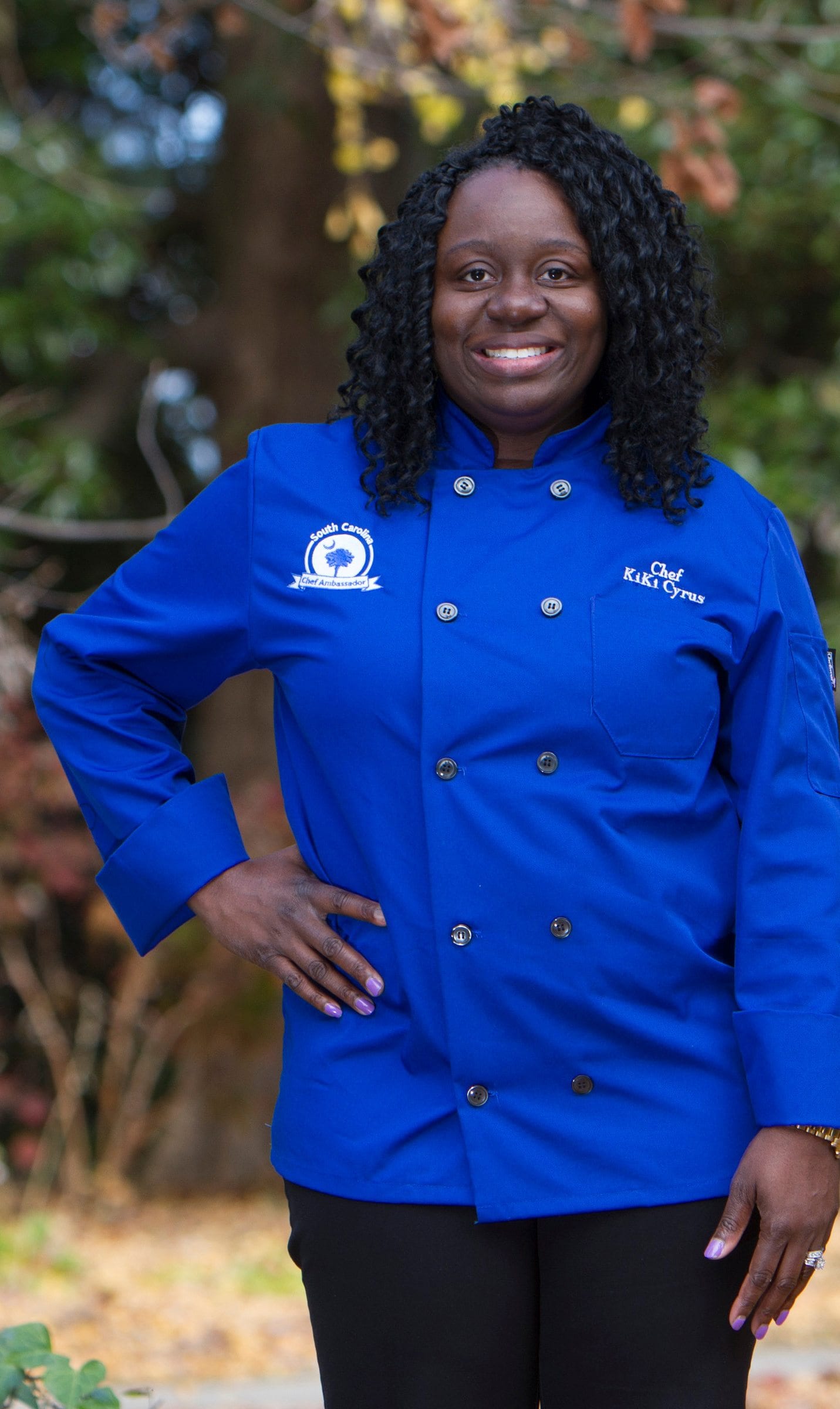Featured Local Black Chefs & Entrepreneurs
 BJ Dennis
BJ Dennis
What differentiates Chef BJ’s food from his contemporaries in “southern” cooking is the homage he pays to the Gullah Geechee culture, brought to the Americas by West Africans, and disseminated along the West Indies and the American South. Dennis infuses the techniques of his ancestors, learned from four years of study in St. Thomas, as well as the lessons of his grandparents about eating from the land, to create fresh interpretations of local dishes focusing on in-season, locally sourced vegetables and seafood. Recent trips to Trinidad and Tobago, Haiti, Barbados, Dominica, U.S. Virgin Islands, Angola, Bahamas and Benin has brought his work full circle. Connecting the people and cultures of the African diaspora through food. Bringing back a true taste of Gullah Geechee culture.
|
Part of the Southern Foodways Alliance Oral History Project, Charleston Stories: Chef and Caterer Benjamin “BJ” Dennis IV, a chef born and raised in Charleston, South Carolina. Dennis is interviewed about how his cooking is inspired by the Gullah Geechee culture, with its origins in West Africa. Dennis spent time in studying culinary traditions in St. Thomas before coming back to the Lowcountry to cook at various restaurants including Anson’s, Carolinas, Hank’s Seafood, and 82 Queen. He cooks at various events across the country and pop-up dinners across the Lowcountry. |
 KiKi Cyrus
KiKi Cyrus
Cyrus’ chicken and waffles are in high demand among those who crave the crunchy, savory-sweet combo constructed of a buttery Belgian waffle topped with four hefty, crusty chicken wings and served with a side of warm syrup. But her signature dish is just the foundation of a solid soul food lineup that honors her cultural roots. Smothered pork chops, shrimp and grits, salmon patties, and all the customary veggies that round out a proper plate of Southern goodness are yours for the asking.
Cyrus, a Charleston native, watched her grandmother and mother prepare meals in the kitchen growing up and developed an aspiration for wanting to be a chef herself.
Focused on incorporating and highlighting locally grown produce and products of South Carolina into her menu items, Cyrus believes it is important to buy local. “Buying local means more money stays within our community and local produce and seafood are fresher.”
|
USC Eats' new summer series, Takeout Tuesday, takes our audience around South Carolina to capture some of the most notable student food spots while at home. This episode features a Columbia soul food attraction, Kiki's Chicken and Waffles, as we speak with owner Kiki Cyrus about her restaurant and put their branded 'best soul food in town' to the test.
|
Rodney Scott
The Scotts built their own hog pits out back behind the store and fired them up with hardwood coals. Young Rodney was just 11 years old when he cooked his first whole hog, and it wasn’t long before he dedicated his life to the art of barbecue. As word began to spread about the Scotts’ weekly barbecue feast, more and more people were hankering for a taste. It turned out that just one day a week of whole hog barbecue was simply not enough. By the mid-1980s they moved to smoking hogs two days a week, and before long, two days turned into three. Finally, in 2012 they added a fourth day, offering old-fashioned whole hog barbecue every Wednesday through Saturday.
But it wasn’t just locals that were eating all those hogs. People drove for hours—from Charleston, 90 miles south, and even beyond—having heard about Rodney Scott and the old-fashioned whole hog barbecue he was cooking in Hemingway. Since, Scott has traveled all over the world – as far as Australia and Balise - to share his passion for whole hog barbecue.
Last year, Scott moved to the Holy City to start a new chapter and open his own place, Rodney Scott’s Whole Hog BBQ, in Charleston’s exciting North Central neighborhood.
|
Full Circle tells the story of Rodney Scott, of Charleston, SC, founder of Rodney Scott's Whole Hog BBQ. And Roscoe Hall, of Birmingham, AL, grandson of the founder of Dreamland Bar-B-Que in nearby Tuscaloosa, who now manages the Birmingham location of Rodney Scott's Whole Hog BBQ. Both men grew up in the barbecue business. And both men now carry forward a legacy of African American knowledge and labor. This is a story about generational transfer, black entrepreneurship, and the future of barbecue in the Deep South.
Produced for the 2010 Big Apple BBQ Block Party, CUT/CHOP/COOK profiles Rodney Scott of Scott's Bar-B-Q in Hemingway, South Carolina. Says Scott, "We only cook with wood and I'm so sure that we only cook with wood because we go out and chop it ourselves." Monday through Wednesday, you'll find Scott doing just that, cutting down trees and chopping wood, and Thursday through Saturday he burns that wood down into coals that he uses to cook a half-dozen whole hogs every night. This film was produced by the University of Mississippi's Media & Documentary Projects Center & the Southern Foodways Alliance, with funding from the Union Square Hospitality Group. |

